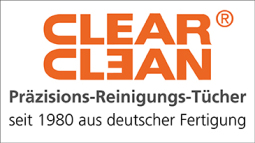- Clothing & Consumables
Efficient hygiene management reduces sickness rates and costs
It is still too early to learn definitive lessons from the corona crisis. But one thing is already clear: hygiene is an economic factor that affects all industries, not just the health and food sectors. Moreover, it is becoming clear that service providers not previously perceived as systemically relevant are indeed systemically relevant. "The pandemic is making us all well aware of what the facts of the matter were previously and will continue to be in the future as well," says Jürgen Höfling, CEO of the CWS Group. “Inadequate hygiene, especially inadequate hand hygiene, causes enormous economic damage. Suppliers and service providers who ensure greater hygiene must be recognized as systemically relevant in order to be able to maintain supplies across borders in an emergency.”
The figures speak for themselves: companies in Germany incur annual costs of around EUR 130 billion as result of illness, for example due to the lost days it entails. That equates to around EUR 3,600 per employee. Much of the absences are caused by colds. Contrary to popular belief, flu viruses, for example, can materialize all year round. Like COVID-19, 90 percent of all colds are caused by viruses. And, just like the coronavirus, the pathogens of up to 80 percent of all infectious diseases are transmitted by hand contact, according to the WHO.
A lot of potential for improvement
This figure – 80 percent – shows just how important hand hygiene is. Regular and correct handwashing can reduce the risk of catching colds by 50 percent. "Everyone will likely have become aware of the importance of washing hands in the course of the corona pandemic," remarks Jürgen Höfling. "Generally speaking, however, companies should do everything possible to ensure that their employees are better protected against infection by viruses and bacteria."
There is still an enormous need for improvement in this context. After a toilet visit, more than 30 million bacteria can accumulate on every square centimetre of the hand. But: 38.7 percent of all office employees do not wash their hands after using the toilet, and only 30 percent use soap to do so. Besides this, many do not dry their hands properly after washing. Damp hands can spread around 1,000 times more bacteria than dry hands, however. Each contaminated hand in turn spreads viruses or bacteria over more than five surfaces on average: on door handles, computer mice, keyboards, pens, tools, armrests and much more. They then remain active on those surfaces for up to 48 hours and longer.
What concrete action can every company take?
The good news is: effective hand hygiene is extremely simple: thorough washing with soap is enough to remove viruses and bacteria from hands. Doing so prevents germs from penetrating the body through the mucous membranes of the eyes, nose and mouth. CWS therefore advises all companies to take three packages of measures:
1. Provision of information on correct hand hygiene in every company. Firms should provide information – for example, on notices in washrooms – emphasizing the necessity for and the right way of washing hands. This applies to the occasions (e.g. after using the toilet, before eating) but also the duration (20 to 30 seconds) and the technique (always use soap, rub into and lather all hand surfaces, dry thoroughly).
2. Adequate supply of soap and disposable towels in all relevant areas. If possible, washbasins should be equipped with systems that dispense water and soap already pre-mixed and that can be operated contact-free. Disposable towels do not have to be paper products to be subsequently thrown away. Reusable fabric towel rolls are more sustainable and environmentally friendly. With their 2-chamber systems, retractive towel dispensers ensure that sections that have already been used remain separated from the clean ones. In its manual on corporate pandemic preparedness planning, Germany's Federal Office of Civil Protection and Disaster Assistance expressly classifies the use of single-use textile systems as suitable for hand hygiene.
3. Only use disinfectants where washing hands with soap and water is not possible. In this case too, instructions on the correct dosage, duration and rub-in technique are also recommended, because the product must be massaged in carefully and for a sufficient time in order to work. For the duration of the pandemic, disinfectants should primarily be reserved for health-relevant companies and risk groups.
Conclusion:
Hygiene as an essential part of occupational safety and health protection ought to be a top priority – in all sectors and industries. In the interests of ensuring that soap and disinfectants as well as other hygiene products can be delivered on time, it is of the utmost importance that suppliers are classified as systemically relevant. "The pandemic is making people ill, but impacting the economy as well," says Jürgen Höfling. "This is one reason more to foster a rapid economic recovery by way of relatively simple, company hygiene measures." This also includes measures such as protective face masks, transparent partition panels on counters and deactivating any further hygiene gaps by means of non-contact alternatives.
![]()
CWS Cleanrooms Deutschland GmbH & Co.KG
Dreieich Plaza 1 A
63303 Dreieich
Germany
Phone: +49 6103 3091290
Fax: +49 6103 309169
email: cleanrooms.de@cws.com
Internet: http://www.cws.com/reinraum












